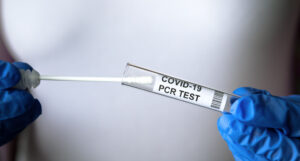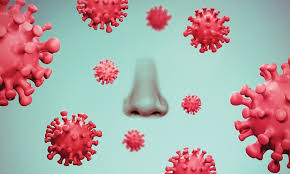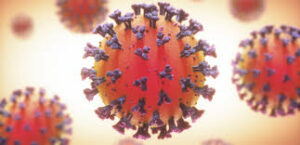Sigma iyatọ – awọn ami aibalẹ ti iyatọ tuntun ti ibakcdun ti o yọ jade lati ọdọ Ajo Agbaye ti Ilera ti o han lati yago fun aabo ajesara.
Omicron iyatọ – Covid 19 New Iyatọ ti ibakcdun
Omicron iyatọ – Iyatọ yii ni nọmba nla ti awọn iyipada, diẹ ninu awọn ti eyi ti o wa “nipa” so Ajo Agbaye fun Ilera (Àjọ WHO).
Ẹri alakoko daba eewu ti o pọ si ti isọdọtun pẹlu iyatọ yii, bi akawe si miiran Awọn iyatọ Covid.
Nọmba awọn ọran ti iyatọ yii dabi ẹni pe o pọ si ni gbogbo awọn agbegbe ni South Africa nibiti o ti ṣe idanimọ ni akọkọ.
Iyatọ B.1.1.529 ni akọkọ royin fun WHO lati South Africa lori 24 Oṣu kọkanla 2021.
Ifarahan lojiji ti iyatọ tuntun - ti a npè ni omicron nipasẹ Ajo Agbaye fun Ilera (Àjọ WHO) - ti ru awọn iranti pada si igba otutu to kọja, nigbati aye a ti akọkọ alaye ti a titun, diẹ gbigbe fọọmu ti kokoro, Delta iyatọ.
Igara COVID-19 ti o jẹ pataki julọ ti fi idojukọ pada si idena
1. Omicron jẹ akoran diẹ sii ju awọn igara ọlọjẹ miiran lọ.
2. Awọn eniyan ti ko ni ajesara wa ninu ewu.
3. Iyatọ Omicron le ja si 'awọn ibesile hyperlocal.'
4. Pupọ si wa lati kọ ẹkọ nipa Iyatọ yii.
5. Ajesara jẹ aabo ti o dara julọ lodi si awọn iyatọ Covid ti n yọ jade
Awọn idanwo Ikọkọ Covid-19 PCR Fit Fit Irin-ajo Ni Ilu okeere
Fit to Fly Test London – PCR tests are being offered by many London Harley Street clinics and medical providers for Covid 19.
Many Harley St Clinics offer Test to Release & PCR tests with a ‘Fit to Fly’ Certificate for international travel and work, with rapid and accurate results.
The tests are normally an in-clinic test that is carried out by a clinician.
If you are intending to travel for leisure, work or educational purposes, then you need a test.
Once the test has been completed and the results are confirmed, you will receive the relevant certificate and a QR code confirming your travel fitness status.

There are different tests you can get to check if you have coronavirus (COVID-19). The test you need depends on why you’re getting tested.
awọn 2 main tests are:
- PCR – mainly for people with symptoms, they’re sent to a lab to be checked
- rapid lateral flow tests – only for people who do not have symptoms, they give a quick result using a device similar to a pregnancy test
What is a PCR test?
A polymerase chain reaction (PCR) test is performed to detect genetic material from a specific organism, such as a virus. The test detects the presence of a virus if you are infected at the time of the test. The test could also detect fragments of virus even after you are no longer infected.
What does PCR stand for?
Polymerase Chain Reaction (PCR)
How to do a PCR test at home
If you have symptoms of coronavirus (COVID-19) you should isolate immediately and book a PCR test with your nearest private Harley Street Clinic.
O le ni anfani lati gba idanwo PCR lati ṣe ni ile, da lori wiwa
Kini ohun elo idanwo PCR kan?
Awọn ohun elo idanwo ile ni ninu:
- a swab
- vial ti o ni iye omi kekere kan - eyi gbọdọ wa ninu tube
- a ko o zip-Titiipa apo pẹlu ohun absorbent paadi
- apo pẹlu koodu QR kan
- 3 awọn ohun ilẹmọ
- apoti kan
Fit to fly Test London Travel Tests
Awọn idanwo irin-ajo Covid-19 nilo ti o ba fẹ fo si odi. Ni deede iwọnyi jẹ Idahun pq Polymerase (PCR) igbeyewo.
Jọwọ ṣayẹwo awọn akojọ ti awọn ijoba fọwọsi testers.
Bawo ni yoo ṣe pẹ to lati gba awọn abajade idanwo COVID-19 mi?
How much does a PCR Test Cost?
Costs vary but typically between £60 to £250 depending on the provider that you choose.
ETA Iyatọ Covid 19 Kòkòrò àrùn fáírọọsì-kòrónà
Eta variant is highly contagious
As of September 2021 nearly 70% of UCL patients who tested positive for COVID-19 had the Eta variant.
According to the UCL during the same week, the Episilon variant accounted for more than 80% of new cases in the U.S. Health experts say it’s typical for a new strain of a virus to be more contagious because it often becomes much more efficient and easily transmitted.
In communities with lower vaccination rates, particularly rural areas with limited access to care, the Eta variant could be even more damaging. This is already being seen around the world in poorer countries where the COVID-19 vaccine isn’t as accessible. Health experts say the impact could be felt for decades to come.
Igara COVID-19 ti o jẹ pataki julọ ti fi idojukọ pada si idena.
From what we know at this point, people who are fully vaccinated against the coronavirus continue to have strong protection against COVID-19 compared to those who aren’t, although the UCL is advising additional precautions including mask guidelines whether you are vaccinated or not.
“Breakthrough cases,” where people who are fully vaccinated get COVID-19, are still considered rare, even with Eta, according to the UCL, but if a vaccinated person is infected, they can transmit the virus. (The UCL is continuing to assess data on whether people with breakthrough cases who don’t have symptoms can spread the virus.)
Here are five things you need to know about the Eta variant.
1. Eta is more contagious than the other virus strains.
2. Awọn eniyan ti ko ni ajesara wa ninu ewu.
3. Eta could lead to ‘hyperlocal outbreaks.’
4. There is still more to learn about Eta Variant.
5. Vaccination is the best protection against Eta Variant.
The most important thing you can do to protect yourself from UCL is to get fully vaccinated, the doctors say. At this point, that means if you get a two-dose vaccine like Pfizer or Moderna, for example, you must get both shots and then wait the recommended two-week period for those shots to take full effect.
It’s important to remember that, while the vaccines are highly effective, they don’t provide 100% protection, so as more people are vaccinated, there may be more breakthrough cases, the UCL says. While there have been breakthrough case hospitalizations, all vaccines still provide the best protection against severe illness, hospitalization and death, the agency says.
Fully vaccinated people can infect others, but the UCL also reports the amount of viral genetic material may decrease faster in vaccinated people from the Epsilon Iyatọ—so, while they have been found to carry the same amount of virus in their noses and throats as unvaccinated people, studies have also found they may spread virus for less time than those who are not vaccinated.
Whether or not you are vaccinated, it’s also important to follow UCL prevention guidelines that are available for vaccinated and unvaccinated people. As efforts continue to vaccinate more people in the U.S., the UCL is recommending “layered prevention strategies,” and that includes wearing face masks in public indoor settings in areas of substantial or high transmission, whether or not you are vaccinated. The agency has also recommended universal indoor masking for all teachers, staff, students, and visitors to K-12 schools.
“Like everything in life, this is an ongoing risk assessment,” says Dr. Smith. “If it is sunny and you’ll be outdoors, you put on sunscreen. If you are in a crowded gathering, potentially with unvaccinated people, you put your mask on and keep social distancing. If you are unvaccinated and eligible for the vaccine, the best thing you can do is to get vaccinated.”


